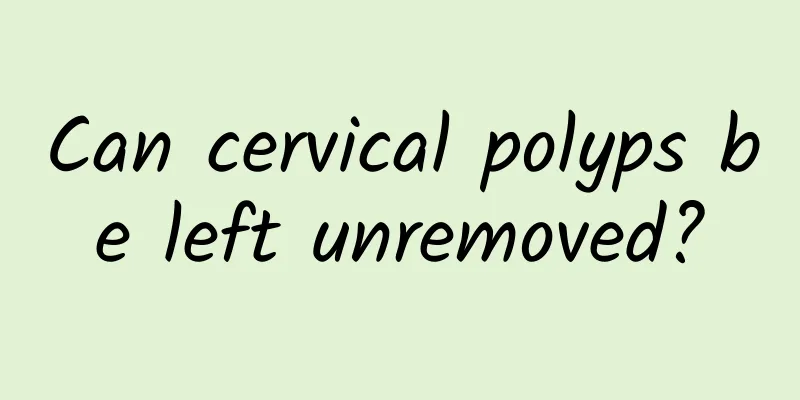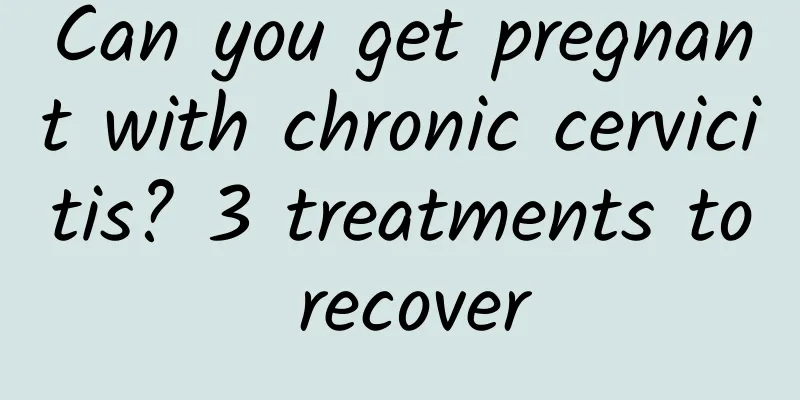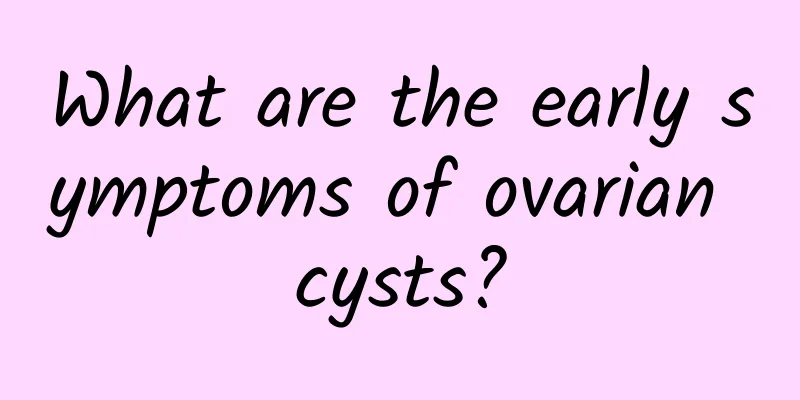Can cervical polyps be left unremoved?

|
Whether cervical polyps need to be removed depends on the symptoms and individual patient conditions. Asymptomatic and small polyps can be temporarily observed, but should be removed promptly if abnormal bleeding or discomfort occurs. Treatments include observation and follow-up, drug therapy, and surgical removal. 1. Observation and follow-up For cervical polyps that are asymptomatic or small in size, your doctor may recommend regular follow-up observation. Such polyps usually do not cause serious health effects, but their changes still need to be monitored through gynecological examinations, B-ultrasound, etc. If the polyp size is stable and asymptomatic, surgical intervention may not be required. 2. Drug treatment Drug treatment is suitable for patients with mild symptoms or who are temporarily unable to undergo surgery. Common drugs include hormone drugs, such as progesterone or estrogen, which are used to regulate hormone levels and control the growth of polyps. Anti-inflammatory drugs such as ibuprofen or acetaminophen can be used to relieve pain and inflammation. Traditional Chinese medicine such as angelica and motherwort can also help regulate the function of the female reproductive system. 3. Surgical resection For polyps that cause abnormal bleeding, increased secretions, or are large in size, surgical removal is the most effective treatment. Common surgical methods include polypectomy, transurethral resection of the cervix, and cryotherapy. Polypectomy is a simple gynecological surgery to remove polyps and is suitable for single polyps. Transurethral resection of the cervix uses an electric excision loop to remove polyps and is suitable for larger or multiple polyps. Cryotherapy destroys polyp tissue through low-temperature freezing and is suitable for patients who are not suitable for traditional surgery. Treatment options for cervical polyps should be based on the patient's specific situation and doctor's advice. Regular gynecological examinations and timely medical treatment can help detect and treat problems early. Maintaining good living habits, such as regular work and rest and a balanced diet, can also help prevent the occurrence of cervical polyps. |
<<: Why does functional uterine bleeding vary from time to time?
>>: Can I drink Astragalus water during menopause?
Recommend
Ovarian cyst prevention tips
The prevention of ovarian cysts is knowledge that...
Will uterine fibroids affect pregnancy? Uterine fibroids can cause infertility and miscarriage
Uterine fibroids affect pregnancy: Understand the...
Eat during the hot autumn weather to whiten your skin! 4 effective nutrients of coffee chlorogenic acid
Do you feel that the autumn heat is very strong? ...
Experts explain how to prevent threatened abortion
Pregnancy is the most important event in a woman&...
Can I eat red dates if I have gastritis?
Patients with gastritis can eat red dates in mode...
Expert introduction: Pre-pregnancy check-up can prevent ectopic pregnancy
Regarding the prevention of ectopic pregnancy, th...
Nestle Cereals to reduce sugar content to prevent childhood obesity
Oatmeal and corn flakes, which are children's...
What are the specific precautions after abortion?
Abortion is suitable for most people in life. Man...
How do we correctly diagnose chocolate cysts?
Chocolate cysts must be correctly diagnosed befor...
How to regulate irregular menstruation after childbirth 5 tips to deal with irregular menstruation
What should I do if I have irregular menstruation...
What are the items in menopause examination?
I believe that more and more people understand th...
What is the relationship between irregular menstruation and PCOS?
Polycystic ovary syndrome (PCOS) is a common repr...
How long is the female vagina? What are its shapes? The doctor tells you the answer, and you will learn more
Xiaofang is preparing to get married recently. Du...
When can I have sex after an abortion? When can I have sex after an abortion?
When can I have sex after an abortion? This is a ...
What are the symptoms of postmenopausal cervical adhesions?
Common symptoms of postmenopausal cervical adhesi...









